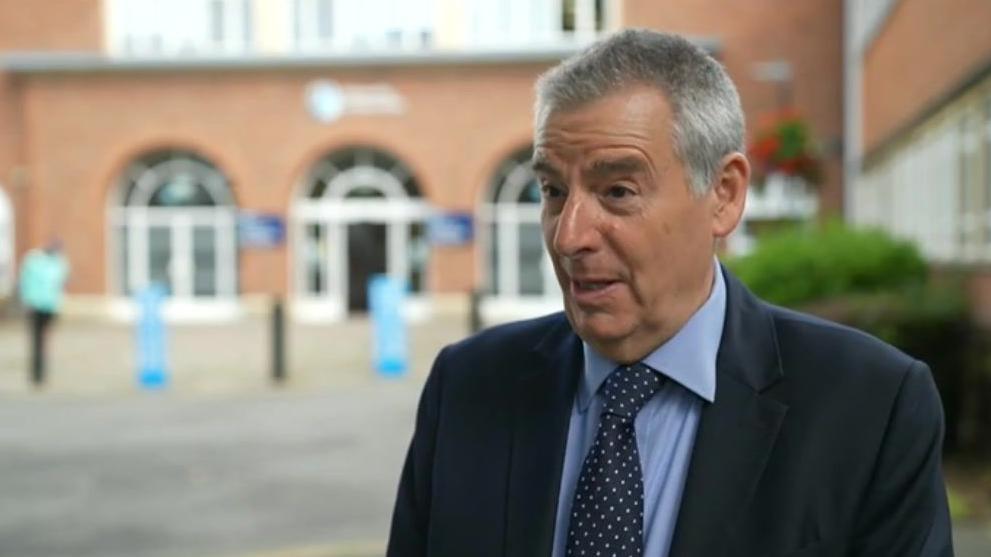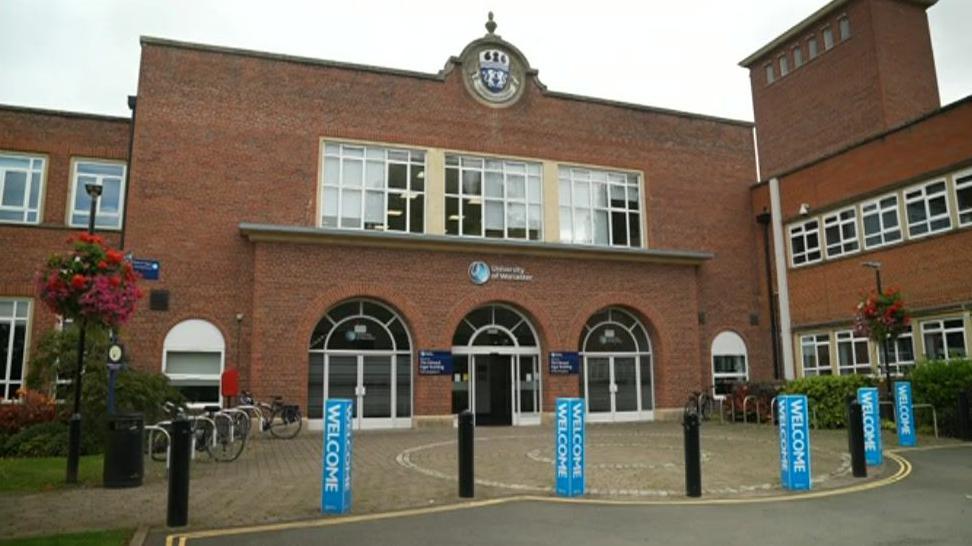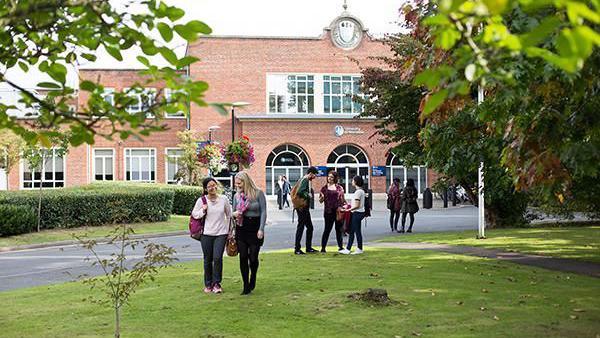University chief opposes rise in tuition fees

The university's vice-chancellor and chief executive Prof David Green said the last three years have been very difficult since the Covid pandemic
- Published
Funding for universities needs to be overhauled as the current system is broken, according to the vice-chancellor of the University of Worcester.
Prof David Green said he was worried about the overall financial position facing universities in England but he did not want to see tuition fees go up.
"My solution to that would be for government grant to increase rather than for tuition fees to increase," he added.
The government said it was acting to establish "certainty and sustainability for the higher education sector".
About 40% of universities are expected to be in deficit this year, according to the higher education regulator the Office for Students.
Earlier this month, one university vice-chancellor said tuition fees in England would need to rise to £12,500 to meet teaching costs but admitted asking for that would seem "clueless".
Prof Green said he was among a small minority of vice-chancellors against "the big increase in tuition fees and the change of the system".
"If the government decides that it's tuition fees that they want to increase, well we all know that the reality is that it's a very substantial amount that they need to go up to, to get back to where they were in 2012," he said.

A voluntary severance scheme has led to about 30 colleagues leaving the University of Worcester
The vice-chancellor, who is also the university's chief executive, said their costs had risen but the income Worcester received through fees or government grants had not kept pace with inflation.
A tenth of the total of their wages bill also went towards pension contributions for teachers, Prof Green added.
"If you add in the other pension schemes that the university is rightly a member of... it's actually one pound in every six that the university is spending on salaries is spent on pension contributions," he said.
As Worcester looks to balance its finances, a voluntary severance scheme has led to about 30 colleagues leaving the university.
Earlier this month, the Department for Education said to was working to make sure universities continued to be "engines of growth, excellence and opportunity".
"We are committed to creating a secure future for our world-leading universities so they can deliver for students, taxpayers, workers and the economy and play their part in breaking down the barriers to opportunity," a spokesperson added.
Get in touch
Tell us which stories we should cover in Hereford & Worcester
Follow BBC Hereford & Worcester on BBC Sounds, Facebook, external, X, external and Instagram, external.
Related topics
- Published5 September 2024

- Published22 July 2024

- Published18 April 2024

- Published23 January 2024

- Published18 January 2024
